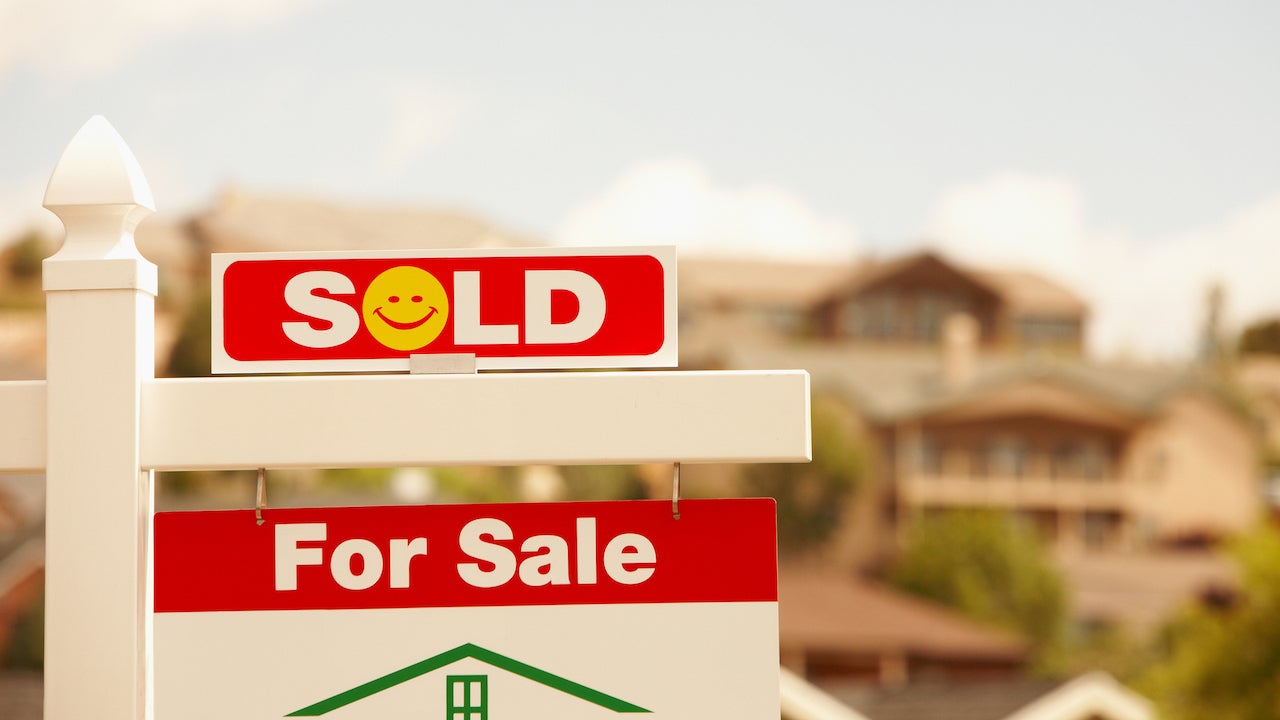How long do you have to own a house before you can sell it?

Key takeaways
- Typically, the longer you hold on to your home, the better you will fare financially when it comes time to sell.
- Five years is generally considered a good rule of thumb in the industry, but it’s not mandatory.
- When deciding whether to sell, it’s important to consider closing costs and tax implications, as well as the broader economy.
When you bought your home, you probably paid a substantial amount of money to make it happen. But now, for whatever reason, it feels like time to move on. Naturally, you want to make a profit on the sale — or not lose money, at the very least. So, is there an optimal amount of time you should keep living there before you list it? How long do you have to own a house before you can sell it?
There’s no simple answer. To figure out what works in your case, you first need to crunch some numbers. Estimating the costs to close a sale and to move, analyzing local real estate market conditions and — most of all — figuring the amount of equity you have in your current home are all important factors to consider before selling your house.
How long should you live in a house before selling?
Unfortunately, there is no hard-and-fast answer to the “how soon can I sell?” question. But on the whole, the longer you hold on to your home, the better you’ll fare financially when it is time to sell. This relates to the concept of building equity in your home.
Home equity is, on a basic level, the difference between your home’s market value and the amount you still owe on your mortgage. So, if you put a 20 percent down payment on a $300,000 house when you buy it, your initial equity stake is 20 percent of that, or $60,000. With each payment made toward the principal, you increase your equity a little bit, which adds up over time. The longer you own the house, the less you’ll owe on your mortgage, which means you’ll be able to hold on to more of the profits from an eventual sale.
The dollar amount of your equity also increases as your home’s value increases. That’s another reason why it behooves you to wait: Home prices tend to rise over time, and the pandemic-fueled housing craze made them rise even faster: Values have risen more than 45 percent in the five years since the pandemic, according to data from Zillow — that’s growth of more than twice the normal rate.
The five-year rule
When it comes to timing, the real estate industry refers to the “five-year rule” as a good guideline when deciding how soon to sell your home. This has to do with the amount of equity the average homeowner has built in their home after five years of possession, and it also takes into account the costs associated with selling a home (and, if applicable, with purchasing a new one).
“Five years is a good, comfortable mark,” says Lawrence Yun, chief economist at the National Association of Realtors (NAR). “If the price of your home appreciates considerably, then even three years would be fine.”
It’s also important to think about what the broader economy looks like whenever the five-year mark arrives. For example, if you bought your home in 2020, the average 30-year mortgage rate was around 3.37 percent. As of late-February 2025, though, it was more than double that at 6.84 percent. That means, if you need to buy a new house after you sell, you’ll pay a significantly higher interest rate.
Reasons you may need to sell your home
According to 2024 NAR research, the most common reason that people sell their homes is because they want to be closer to friends and family — a great motivation to move. Here are some other common factors that can lead a homeowner to sell:
- Your finances have changed: People often opt to move for financial reasons. Perhaps you’ve lost your job, your income has dwindled or you’ve gone through a divorce. Of course, there can be happier reasons too: Maybe your income has grown significantly, or you’ve gotten married and now have a bigger shared budget to start fresh together with a new property.
- You need more space: The second most-cited reason for selling a home, according to the NAR study, is because it’s too small. Whether you’re expanding your family, need a dedicated home office for remote work or simply longing for a bigger backyard, selling for more square footage is common.
- You need less space: On the opposite end, perhaps you’re an empty-nester and a four-bedroom property is simply more than you need now. Downsizing can make life more manageable — and lower your maintenance costs.
- It’s a seller’s market: While a primary residence is a home first and an investment second, sometimes the housing market seems so advantageous for sellers that you can’t resist the opportunity to make a big profit. This is especially true if your property’s value has appreciated significantly since you purchased it.
What to consider before selling
Initial costs
Your net proceeds are not the same as your home’s purchase price, even if a buyer pays above ask. For one thing, you have to take into consideration how much you paid for the property in the first place, and how much you owe if you are still paying off a mortgage.
Beyond that, there are all sorts of expenses associated with selling your home. All this needs to be figured into whether it makes financial sense for you to sell now — crunch the numbers to see if you will walk away from the sale with enough profit to make it worth your while.
Home equity
Home equity — the difference between the balance owed on your mortgage and the market value of your home — is an important factor when you’re considering selling. Real estate typically increases in value over time, and the longer you stay in a home, the more equity you’re likely to have when you’re ready to move on. Taking the time to build equity before selling can be a smart move, allowing you to pocket more proceeds from the sale or providing a more significant down payment for your next home.
Closing costs
A seller’s closing costs generally come out of the home’s purchase price (they aren’t usually paid out of pocket). The amount will vary depending on many factors, including your property’s final sale price, what state you’re located in, local property tax rates, whether you hire a real estate attorney and more.
There are also real estate commission fees to consider. These typically amount to between 2.5 and 3 percent for each agent involved in the transaction. Depending on the terms of the deal negotiated, the seller may be on the hook to pay either only their own agent, or both their own and their buyer’s. Either way, it can amount to a significant chunk of money: For a $300,000 home sale, 3 percent comes to $9,000 and 6 percent comes to $18,000.
Capital gains taxes
If you stand to make a large profit on your home sale, you’ll want to think about one more thing before you sell: capital gains taxes. Residential real estate counts as a taxable asset, just like a stock. However, the IRS generally allows homeowners a profit of up to $250,000, or $500,000 if married and filing jointly, before the capital gains tax kicks in.
But there are two big conditions: You have to have owned the property for at least two years, and it has to be your primary residence for at least two out of the five years immediately preceding the sale. So if property values in your area have skyrocketed and you want to cash in, two years is the amount of time you’ll want to wait to avoid paying the IRS.
Next steps
Choosing a real estate agent is one of the most important stages of the home-selling process. You want someone who is well-versed in your local market. This person will be responsible for helping you set your listing price, hosting open houses, scheduling showings, negotiating with buyers and ushering you through the closing process. It’s a lot, and it’s much easier if you’re doing it with someone experienced, knowledgeable, trustworthy and pleasant to work with.
FAQs
Why we ask for feedback Your feedback helps us improve our content and services. It takes less than a minute to complete.
Your responses are anonymous and will only be used for improving our website.
You may also like


What is the 28/36 rule for home affordability?




